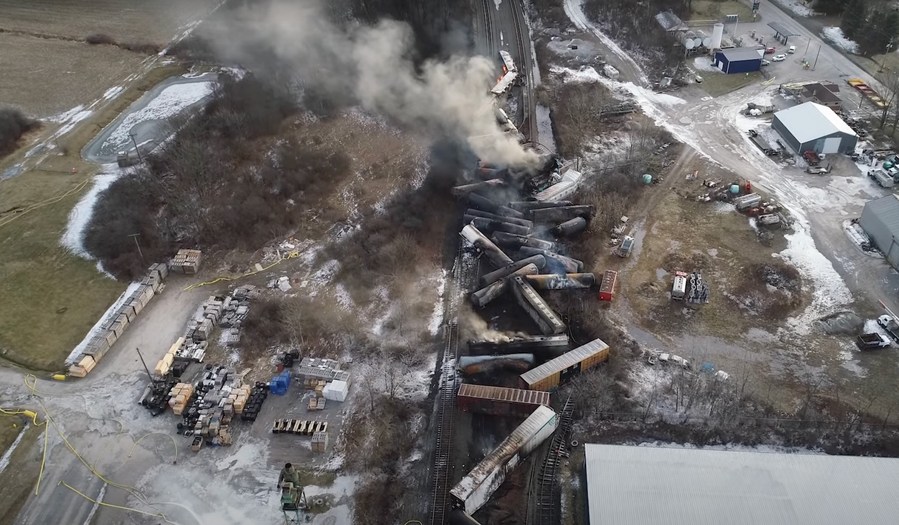
This video screenshot released by the U.S. National Transportation Safety Board (NTSB) shows the site of a derailed freight train in East Palestine, Ohio, the United States.
U.S. train derailments dropped to 1,093 last year, from 2,435 in 2004, which still means there are about three derailments a day. Each of those accidents carry risk.
NEW YORK -- When a Norfolk Southern Corp. train derailed earlier this month, creating a fiery crash that spilled chemicals across a small town in the U.S. state of Ohio, long-simmering tensions in the United States were ignited, reported The Meadville Tribune on Saturday.
"While the crash didn't cause any injuries or deaths, it has become a focal point of grievances and suspicions," it said, noting that "some have said corporate greed is taking precedence over rail safety and environmental protection."
Train safety was already a flashpoint before the Norfolk Southern crash. Large railroads in the country shed more than 40,000 workers since 2016 under a strategy called Precision Scheduled Railroading.
That boosted profits but ruffled customers, who had to adjust their schedules for freight pickup, and angered workers, who were stretched thin, according to the morning daily newspaper published in Meadville, Pennsylvania.
U.S. train derailments dropped to 1,093 last year, from 2,435 in 2004, which still means there are about three derailments a day, said the report, adding that "each of those accidents carry risk."











